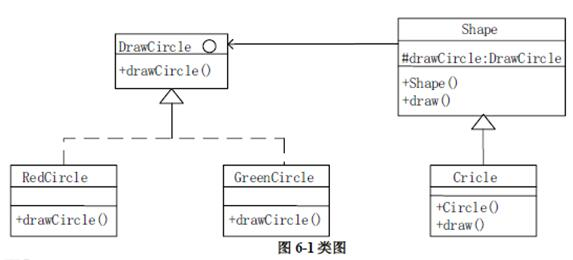有如下类定义: class Test { public: Test(){a=0;c=0} //① int f(int a)const{this->a=a;} //② static int g(){return a;} //③ void h(int b){Test::b;}; //④ private: int a; static int b; const int C; }; int Test::b=0; 在标注号码的行中,能被正确编译的是( )。A.①B.②C.③D.④
题目
有如下类定义: class Test { public: Test(){a=0;c=0} //① int f(int a)const{this->a=a;} //② static int g(){return a;} //③ void h(int b){Test::b;}; //④ private: int a; static int b; const int C; }; int Test::b=0; 在标注号码的行中,能被正确编译的是( )。
A.①
B.②
C.③
D.④
相似考题
更多“有如下类定义:class Test{public:Test(){a=0;c=0}//①int f(int a)const{this->a=a;}//②static in ”相关问题
-
第1题:
有如下类定义: class Test { public: Test{a=0;c=0;}//① int f(im A.const{this->a=a;}//② static int g{return a;f//③ void h(int B.{Test:.b=b;};//④ private: int a; static int b; const int C; }; int Test::b=0: 在标注号码的行中,能被正确编译的是( )。
A.①
B.②
C.③
D.④
正确答案:D
只能通过构造函数的参数初始化列表对常数据成员进行初始化,本题中常数据成员为C。①通过默认构造函数初始化c,所以不正确。常成员函数只能引用本类中数据成员,而不能修改它,所以②不正确。静态成员函数由于没有this指针,所以不能访问本类中的非静态成员,所以③错误。 -
第2题:
已知程序中已经定义了函数test,其原型是int test (int,int,int);,则下列重载形式中正确的是( )。
A.char test(int, int, int);
B.double test (int,int,double);
C.int test(int ,int, int=0);
D.float test(int,int,float=3.5F);
正确答案:B
-
第3题:
阅读下列说明和C++代码,填写程序中的空(1)~(6),将解答写入答题纸的对应栏内。
【说明】
以下C++代码实现一个简单绘图工具,绘制不同形状以及不同颜色的图形。部分类及其关系如图6-1所示。

【C++代码】
#include?#include?using?namespace?std;class?DrawCircle?{??????//绘制圆形,抽象类? ? ? public: (1);//定义参数为?int?radius,?int?x,?inty? ?virtual~DrawCircle()?{?}};class?RedCircle:public?DrawCircle?{????//绘制红色圆形? ? ? ? public: void?drawCircle(intradius,?int?x,?int?y)?{cout?<?drawCircle?=?drawCircle;? }? ?virtual~shape()?{?}? public:? ?virtual?void?draw()?=?0;};class?Circle:public?Shape?{????//圆形? ? private:? ? ?int?x,y,radius;? ? public:? Circle(int?x,inty,int?radius,DrawCircle?*drawCircle)? (3)? {? this->x?=?x;? ?this->y?=?y;? ? this->radius?=?radius; }? ? ? public:? void?draw(){? drawCircle?-> (4); }};int?main(){Shape?*redCirclenew?Circle(100,100,10,????(5)????);//绘制红色圆形? Shape?*greenCircle=new?Circle(100,100,10, (6)??);//绘制绿色圆形redCircle >draw();? ?greenCircle?->draw();? ?return?0;}答案:解析:(6)(1)void drawCircle (int radius,int x,int y)
(2)DrawCircle*drawCircle
(3)drawcircle
(4)drawCircle(radius,x,y)
(5)new RedCircle()
(6)new GreenCircle()【解析】
第一空是填接口里面的方法,在接口的实现里面找,可以发现应该填void drawCircle (int radius,int x,int y)。
第二空可以根据后面this drawCircle=drawCircle判断,这里应该有一个drawCircle属性,因此应该填)DrawCircle drawCircle。
第三空这里填drawcircle,用-> drawcircle来引用父类的成员。
第四空调用drawCircle(radius,x,y)方法。
第五、六空分别创建一个红色圆形对象和一个绿色圆形对象作为Circle里面的实参。 -
第4题:
有如下类定义: class Test { int x_,y_; public: Test ():a_(0) ,b_(0) {} Test(int a,int b=0) :a_(a),b_(b){} }; 若执行语句 Test x(2) ,y[3],*z[4]; 则Test类的构造函数被调用的次数是( )。
A.2次
B.3次
C.4次
D.5次
正确答案:C
解析:定义对象x时执行一次构造函数(调用Test(int a,int b=0) ),定义对象数组y时,构造函数(注意,该构造函数必须是没有任何参数的)的执行次数与数组中对象的个数相等,即需要执行3次,最后定义一个指向Test对象的指针数组,它并不会创建对象,从而也就不会去执行构造函数,故构造函数一共执行了4次。 -
第5题:
如下程序编译时发生错误,错误的原因是show函数实现语句错误,则正确的语句应该为______。
include<iostream.h>
class test
{
private:
int hum;
public:
test(int);
void show( );
};
test::test(int n){num=n;}
test::show( ){cout<<num<<endl;}
void main( )
{
test T(10):
T.show( );
}
正确答案:void test::show( ){coutnumendl;}
void test::show( ){coutnumendl;} 解析:show成员函数的声明和实现不一致,即实现部分应有void修饰符,这样才能编译通过。
